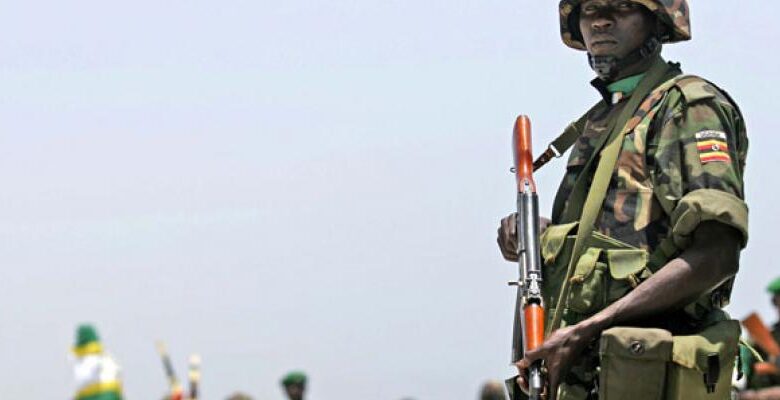Ugandan Troops To Withdraw From DR Congo’s Joint Military Operations
The joint military operations between Ugandan and DR Congo forces against armed rebels in the DR Congo will end on May 31 except the two countries enter a fresh agreement.

Soldiers of the Uganda Peoples Defence Forces (UPDF) who have been carrying out joint military operations with the Democratic Republic of Congo national army, FARDC, since Nov. 30, 2021, will be withdrawn back to Uganda by May 31, 2022, except a new accord is signed between the two countries, Ugandan military authorities said.
Gen. Muhoozi Kainerugaba, the Ugandan chief of land forces said on Tuesday, May 17: “The Operation Shujaa will officially end within two weeks, according to our initial agreement. It had to last six months.”
“Unless we receive other instructions from our Commander-in-Chief (President Museveni) or the chief of defence forces, I will withdraw all our troops from the DR Congo in two weeks,” said Gen. Kainerugaba who is the son of President Museveni of Uganda.
The Ugandan chief of land forces added that “Operation Shujaa” (which means “he who is strong” in Swahili) can continue for even another six months if the two presidents, Museveni of Uganda and Tshisekedi of the DR Congo, decide to extend it as they have the ultimate authority to decide.
Meanwhile, Vincent Ssempijja, Ugandan Minister of Defence, confirmed that “the bilateral accord with the DR Congo on Operation Shujaa will end on May 31”.
“Our respective organs are in consultation and are evaluating the situation and all future military cooperation with the DR Congo after May 31 will depend on what the two countries have realised during the operation,” the Ugandan Defence Minister added.
Uganda has since Nov. 30, 2021 deployed its soldiers to eastern DR Congo in a joint military operation with the Congolese army against rebels of the Allied Democratic Forces (ADF) which is accused by the DR Congo of killing civilians and by Uganda of attacks claimed by the jihadist Islamic State which considers the ADF as its Central African province.
The ADF was originally a coalition of Ugandan armed groups opposing President Museveni’s regime but has since 1995 pitched homes in eastern DR Congo.
It is considered the most vicious of the multiple armed groups in the DR Congo accused of being responsible for the massacre of thousands of civilians, abductions, and looting.
Since April 2019, some of the ADF attacks have been claimed by the Islamic State and last March, the United States of America placed the ADF among the terrorist groups affiliated to the Islamic State.
Some Congolese are not comfortable with the joint Ugandan/DR Congo military operations as they fear seeing a long presence of the Ugandan army on Congolese territory just as Rwandan forces which have been accused of largely contributing to the destabilisation of the eastern DR Congo for the past decades.
Support Our Journalism
There are millions of ordinary people affected by conflict in Africa whose stories are missing in the mainstream media. HumAngle is determined to tell those challenging and under-reported stories, hoping that the people impacted by these conflicts will find the safety and security they deserve.
To ensure that we continue to provide public service coverage, we have a small favour to ask you. We want you to be part of our journalistic endeavour by contributing a token to us.
Your donation will further promote a robust, free, and independent media.
Donate HereStay Closer To The Stories That Matter




